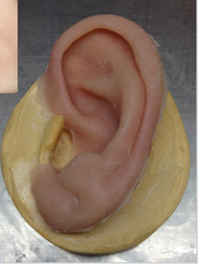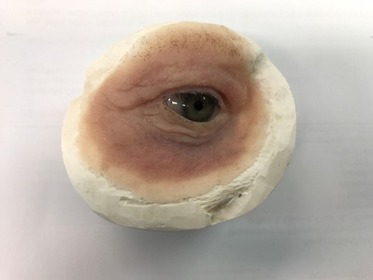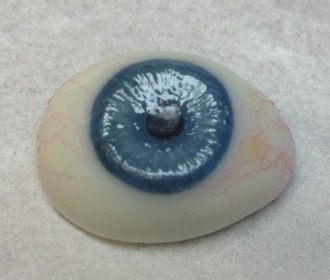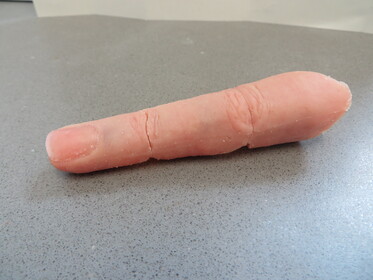Many women experience tears to some extent during childbirth as the baby stretches the vagina. For some women, the tear may be deeper and involve the muscle at the bottom of their back passage, called the ‘anal sphincter’. This muscle is important in preventing the leakage of gas (‘wind’) or faeces (‘poo’) during normal daily activities. Therefore, it is very important to identify a 3rd or 4th degree tear and repair it properly. If the tear involves only the anal sphincter muscle, it is called a 3rd degree tear. If the tear extends further into the lining of the anus or rectum, it is known as 4th degree tear.
How common are 3rd or 4th degree tears?
Overall, a 3rd or 4th degree tear occurs in about three in 100 women having a vaginal birth. It is slightly more common in women having their first vaginal birth, compared to women who have had a vaginal birth before.
What increases my risk of a 3rd or 4th degree tear?
These types of tears usually happen unexpectedly during birth and most of the time it is not possible to predict when it will happen, however, it is more likely to happen if:
- This is your first vaginal birth
- your baby is born facing upwards
- You have a large baby
- You have a long labour
- You need help with the birth by forceps or ventouse
- You have had a 3rd or 4th degree tear before.
What will happen if I have a 3rd or 4th degree tear?
This will need to be repaired in the operating theatre under an epidural or spinal anaesthetic or very occasionally a general anaesthetic. During the procedure, antibiotics are given to prevent infection and a catheter (tube) is passed into the bladder to allow drainage of urine.
After your repair, it is recommended that you take the following medications:
- Regular pain killers. Do not wait until you are in pain, but take them on regular basis for the first few days and subsequently as you require them
- A course of oral antibiotics for one week to reduce the risk of infection that could lead to break down of the repair
- Laxatives for approximately two weeks to make it easier and more comfortable to open your bowels.
None of the medications will prevent you from breastfeeding your baby, however, if you have any concerns please speak to your midwife.
You will be advised to:
- Wash your hands before as well as after using the toilet
- Wash your perineum after every visit to the toilet, preferably with warm water
- Pat/wipe the area dry with toilet paper. Always wipe, front to back to avoid contamination from your back passage
- Change your sanitary towels regularly, at least every three to four hours
- Avoid standing or sitting for long periods
- Check your perineum for signs of infection. If the area becomes hot, swollen, weepy, smelly, very painful or start to open, or you develop a temperature or start feeling unwell, please let your midwife or GP know
- Begin doing your pelvic floor exercises as soon as you can – this will strengthen the muscles around the vagina and anus, increase the blood supply and help with healing.
You will be offered physiotherapy advice about pelvic floor exercises before going home.
What can I expect to go home?
After having any tear or an episiotomy, it is normal to feel pain or soreness around the tear for two to three weeks after giving birth, particularly when walking or sitting. Passing urine can also cause stinging. Continue to take your painkillers when you go home.
Most of the stitches are dissolvable and the tear should heal within a few weeks, although this can take longer. The stitches can irritate as healing takes place and uou may notice some stitch material fall out, both are normal.
To start with, some women feel that they pass wind more easily or need to rush to the toilet to open their bowels. Most women make a good recovery, particularly if the tear is recognised and repaired at the time. Six to eight in ten women will have no symptoms a year after birth.
When can I have sex?
It is best to resume sex after the stiches have healed and the bleeding has stopped but there is no right or wrong time. For some people, it is within a few weeks but for others it can be when they feel ready.
Follow up
If you had a 3rd degree tear, you will be contacted by one of the gynaecology specialist nurses after three months from having your baby to ask whether you are still having problems such as: uncontrollable leakage of wind, staining of underwear with faeces or uncontrollable leakage of faeces. If you are having any of these or other problems, you will be referred to the uro-gynaecology clinic, where we see women with problems of the pelvic floor. If you have really troublesome problems, talk to your midwife or GP so that you can be seen sooner than three months.
If you had a 4th degree tear, you will be referred to the uro-gynaecology clinic three months after having your baby. If you have really troublesome problems, talk to your midwife or GP so that you can be seen sooner than three months.
What about having another baby?
There is no reason to suggest having a vaginal birth next time is not possible. You will be able to discuss your options for future birth (vaginal delivery or planned caesarean section) with an obstetrician early in your next pregnancy. Your individual circumstances and preferences will be taken into account. Please book with your midwife early in the next pregnancy, so that you can be referred to be seen in Antenatal clinic by a Consultant Obstetrician to discuss your options for delivery.




